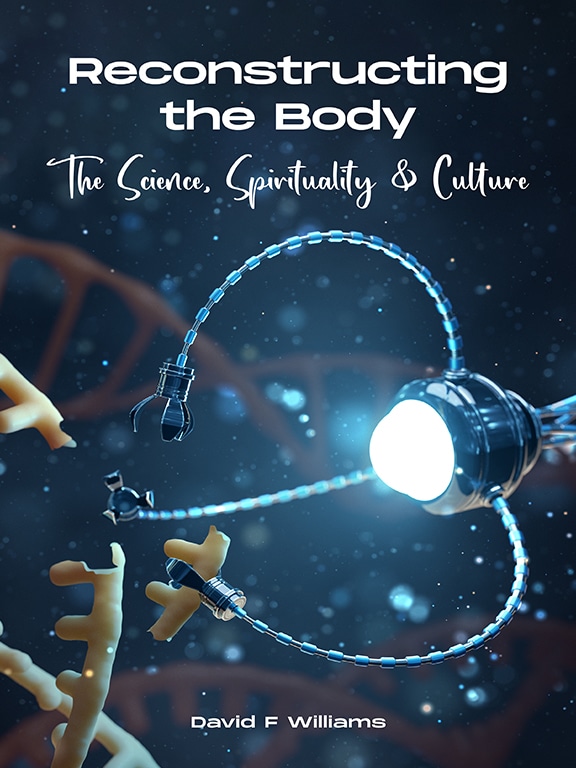devices. Whole organs and crucial parts of the anatomy, for example the face, may be exchanged for tissues transplanted from donors. Profoundly deaf or blind individuals may be treated by devices or stem cells to provide remarkable sensory powers, and the line in John, 5:8, “Take up thy bed and walk” has new meaning using powered limbs for amputees that may be controlled by a personalized brain-computer interface such that brainwaves determine the movement of muscles and prostheses.
A whole myriad of questions and conundrums are represented in the discussion about the benefits and disadvantages of life-enhancing, -saving or -prolonging therapies. Some have societal, religious, or ethical bases, some economic, either in the personal or generic sense. There are inevitable geographical variations in terms of supply and demand; in many parts of the world, survival to modest old age is still achievement enough, while elsewhere nonagenarians are queuing up to reach their centuries; in the UK it has long been a tradition that all those who reach 100 years of age receive a celebratory card from the monarch, and the former queen had to significantly increase the staff who handle this task because of the 70% increase in numbers over the last decade.
The issues addressed in this book primarily include descriptions of the therapies that are available today, with discourses about those constraints which determine that such therapies may be either unavailable or inappropriate for many individuals. It may appear self-evident that a deaf child of five years of age should be able have a cochlear implant and that a 50-year-old man suffering from profound osteoarthritis, but is otherwise healthy, should be suitable for multiple joint replacements. But what about the 80-year-old who has severe calcific aortic valve stenosis that could be treated with a prosthetic heart valve but who has significant co-morbidities such that quality of life will be undoubtedly diminished and probably the lifespan profoundly shortened? At the other end of the spectrum of valvular disease, is it ethically acceptable if only a handful of the young people in Sub-Sahara Africa who, within the hundreds of thousands who suffer from the eventually fatal rheumatic heart disease, (which can currently be only treated by open-heart surgery) are able to receive surgery during the occasional humanitarian visits by surgeons from the USA or Europe.
For many of us, we may ask ourselves the question; do I currently want to extend my life through the availability of medical technologies, and if the answer is yes, at what age would I expect to change my mind, and for what reason?
For those individuals who have responsibility for framing policies on the treatment of aging people, and who are in youth or middle age when working on these policies, it would be of immense importance that they understood the physical and, especially mental and spiritual, needs of old age. In the extreme case, we may look at the position of centenarians, as discussed by Manning et al 9, when dominions of life and death face each other daily. Spirituality may be a resource for those in this position to respond, and perhaps adapt, to almost inevitable challenges, such as the death of a spouse or ‘younger’ family members, physical disability, and the ever-changing society in which they exist. Manning et al concluded that spirituality maintains saliency over the whole life of these individuals, and it has the potential to provide elders with peace, comfort, connectedness, and strength; however, they concede that their research was conducted among a population of Christians in the traditional conservative Midwest of the United States. Such centenarians were born in the early parts of the twentieth century when the church provided a dominant force in the community, and it is unlikely that they would diminish their faith as they move towards the end of life. On the other hand, we might expect that some individuals who demonstrated little religiosity through much of their life would turn to a church at the very end in the hope that this would be beneficial should there be an ‘after-life’. It is also noted that religious devotion is not always helpful as it may promote excessive guilt and anxiety. Some religious groups discourage health

